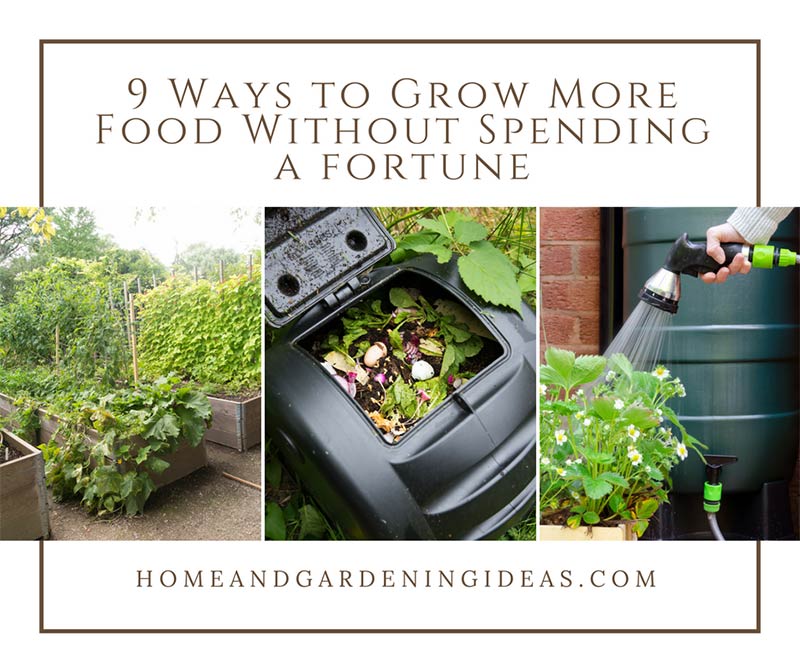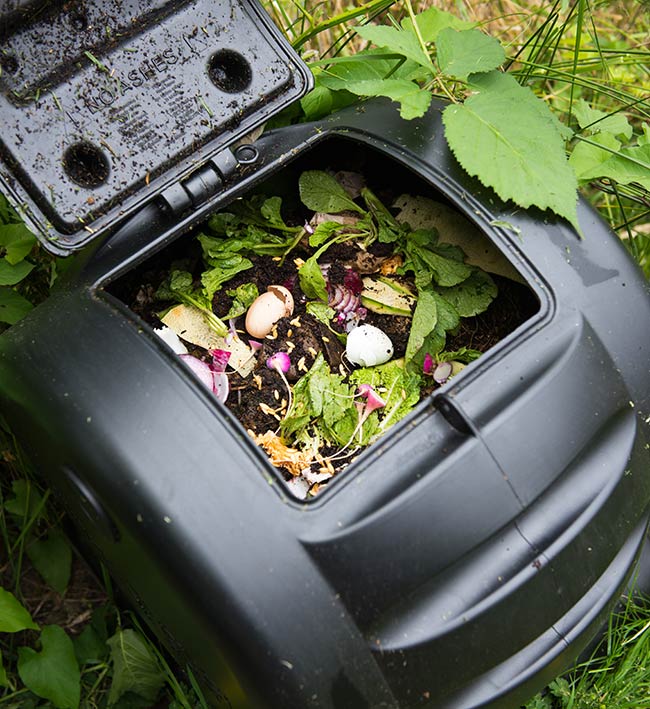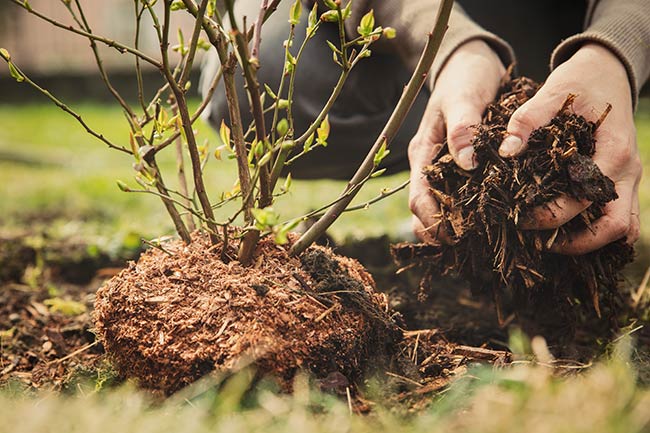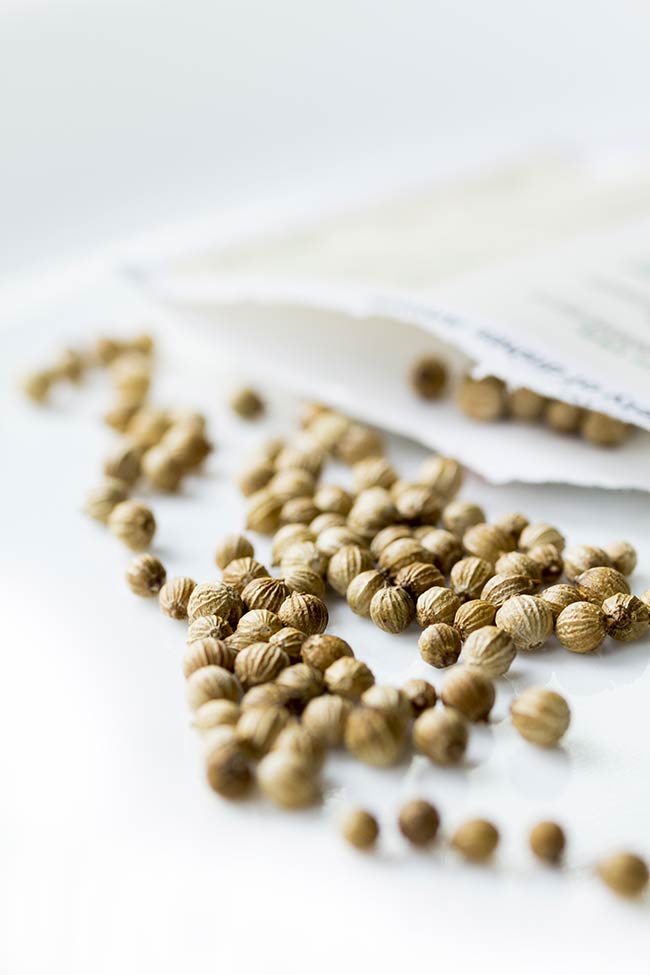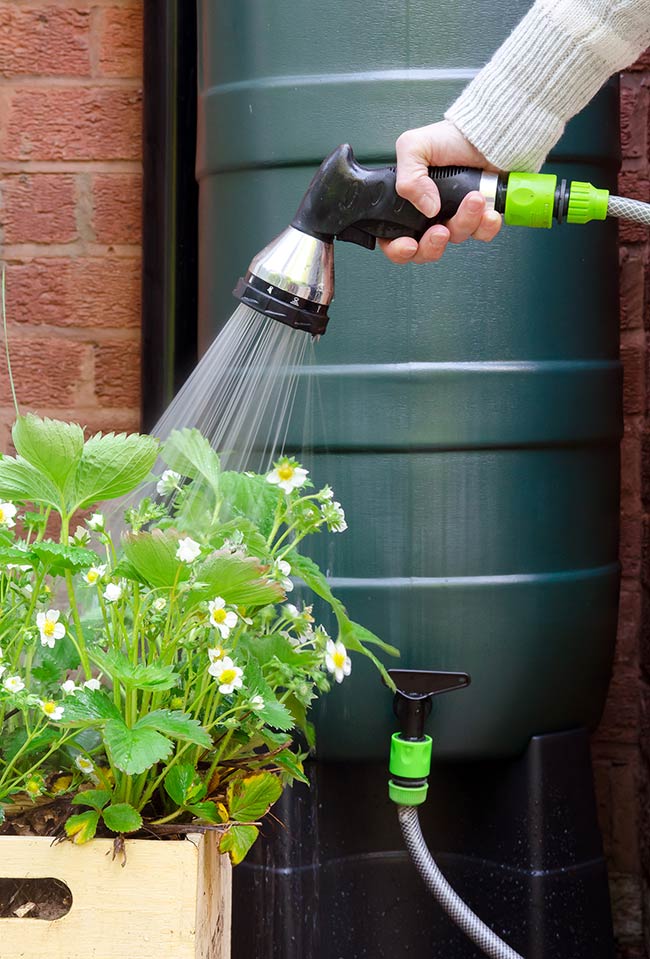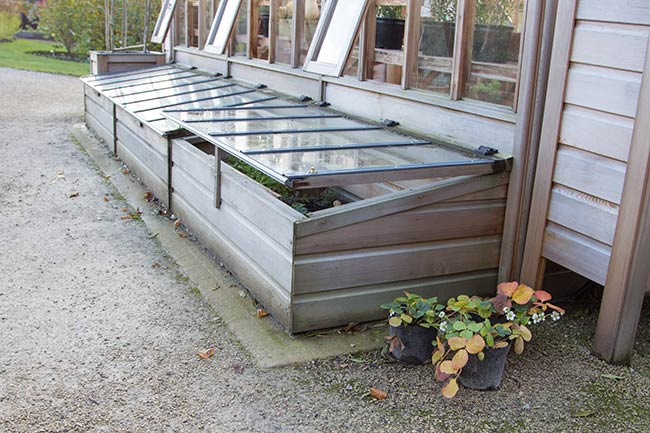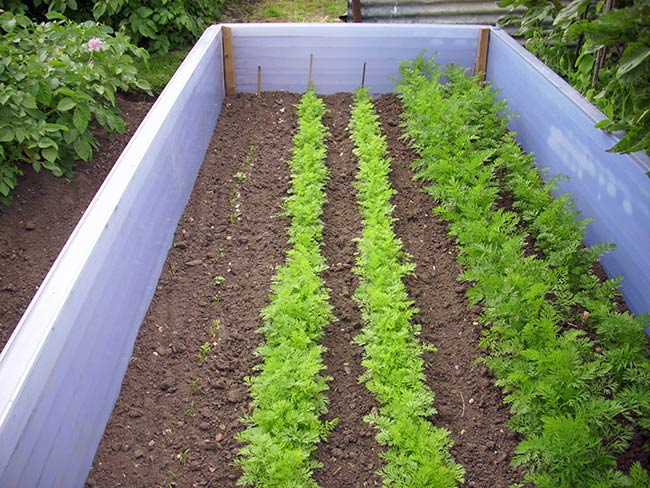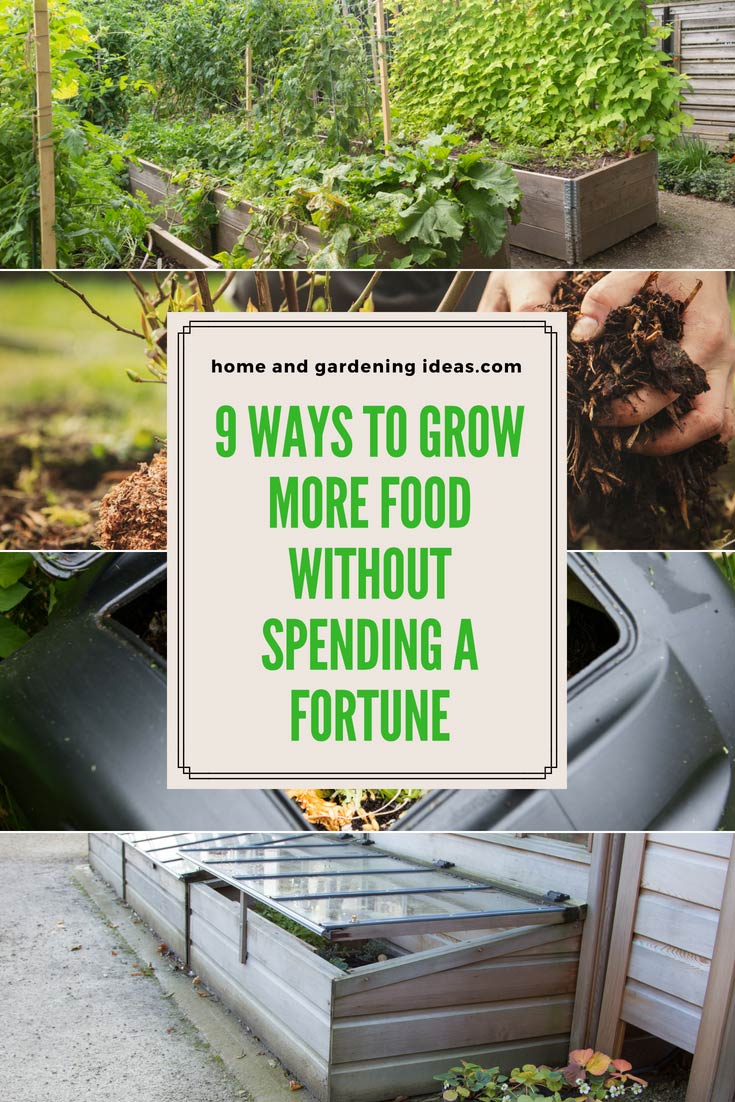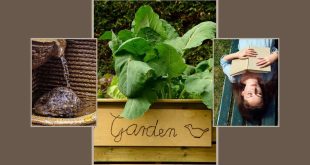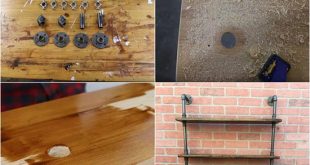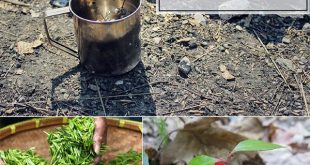9 Ways to Grow More Food Without Spending Money
Gardening saves you money and produces healthy food for your family. The more food you grow, the more money you save, but how can you grow more food without spending more money? If you have to invest more money into your garden, you aren’t saving any money.
Luckily, there are ways to grow more food without spending more money. These are all easy thing everyone can – and should – do in their garden to increase their productivity. Let’s take a look at these methods!
Start a Compost
A bountiful harvest requires healthy soil, which means you need have to feed your soil and the microbes that live in it. Compost is like a superfood for your compost, and you can make it for free at home. When you use compost, it helps to amend the soil by helping to increase water retention and improve drainage.
To start, you need a bin where you can place brown and green materials that will decompose over time, turning into compost. Instead of turning these items into the trash, you put them into a compost bin, turning a few times a week.
You can add:
- Eggshells
- Fruits and veggie scraps
- Coffee grounds
- Tea leaves
- Grass clippings
- Shredded leaves
- Newspaper
Apply Layers of Organic Mulch
Mulch is a friend of the gardener because mulch helps to retain water, suppress weeds, and prevents erosion. Improving water retention means you don’t need to water as often, saving you money!
Mulch also helps to balance the temperature of the soil. During spring and fall, mulch keeps your soil warmer. During summer, mulch keeps your soil cooler, and balancing the temperature allows your soil to absorb the nutrients available.
You can buy mulch at the store, but there are plenty of free options. Some picks are:
- Cardboard
- Newspaper
- Grass Clippings
- Shredded Leaves
If you run out of grass clippings or leaves, you can consider adding sorghum, which is an annual summer grain, to your planting plans. The crops grow up to six feet tall in 65 days. You can cut them down before they seed for a free mulch source.
Save Your Seeds Each Year
Saving your seeds each year saves a lot of money – purchasing a full garden’s worth of seeds can cost well over $100! Over the years, the plants you save will adapt to your specific climate and conditions, as well as the micro-flora and fauna that live in your soils.
That means your plants will have a higher resistance against common diseases and pests in your area. All of this leads to a larger harvest.
Use Rainwater
Watering your garden takes money out of your pocket, but you can’t have a garden without water. What’s the solution? Collect rainwater! Rainwater benefits your plants because it contains fewer contaminants. Plus, rainwater isn’t treated with chlorine, which has the possibility of destroying microbes in your soil and slow plant growth.
Also, when you store rainwater, it is kept at lukewarm temperature, unlike your hose water which is much colder. The water temperature is less likely to shock your plant roots.
Bring on The Bees
Pollinators are essential for many different plants you grow in your garden. For example, zucchini plants won’t produce a fruit without pollination. Bees and other pollinators are central to our food production, so you need to encourage bees to visit your garden.
There are several ways to do so. You can try planting some of the packets of wildflowers that are advertised to encourage bees. A cheaper way to encourage bees is to leave your plants and weeds to flower, which encourages bees to forage in the area. Dead wood gives a habitat for bees to live.
One of the best ways to encourage more pollinators is to stop spraying chemicals that kill them. Many pesticides and weed killers also kill off the beneficial bugs and bees in your garden. Say no to the chemicals so that you can say yes to the bees.
Use Free Fertilizers
Fertilizers are important for your plants. They provide all of the nutrients and give a little boost to your plants throughout the groiwing season. You can go to the store and purchase fertilizers – there are so many options, but that costs money. We want to save money and get a larger harvest.
Instead, try some fertilizers that you have available to you at home. Some awesome, free fertilizers include:
- Grass Clippings
- Coffee Grounds
- Banana Peels
- Fish Bones
- Eggshells
- Human Urine
Start Early and End Late
To extend your season and grow more food, start your plants earlier and plant a fall garden. Use cloches, cold frames, and row covers to plant up to a month earlier and a month or two later! These season extenders protect your crops from frost and cold temperatures, as well as protecting your crops from deer. These simple tools can help you grow a large assortment for cold-tolerant greens and root crops.
Include Perennial Vegetables
Edible plants that come back year after year saves time and money. All you have to do each year is pull weeds, mulch, and fertilize. Make sure you check out what perennials grows well in your gardening USDA Hardiness Zone.
Asparagus, for example, can produce spears for 20 years. While it is an investment to plant it the first year, you will make back your money 20 times. Other perennial vegetables include:
- Rhubarb
- Sorrel
- Jerusalem Artichokes
- Horseradish
Practice Succession Planting
Many crops do well when you practice succession planting, creating a steady harvest. With succession planting, you plant a few rows every two to three weeks. Doing so spreads your harvest season. Instead of harvesting your lettuce all at one time, you will have a steady supply for the entire season. You also can plant two vareities with different maturity rates.
Succession planting allows you to have a larger harvest over the season, and it makes it easier to ensure you can use up all of that harvest. Letting lettuce rot in the garden bed or being unable to preserve all of your carrots is a waste, and no one wants to waste food or money.
Pinterest Image
 Home and Gardening Ideas At home and Gardening ideas we believe inspiring readers about homesteading, self sufficiency
Home and Gardening Ideas At home and Gardening ideas we believe inspiring readers about homesteading, self sufficiency
